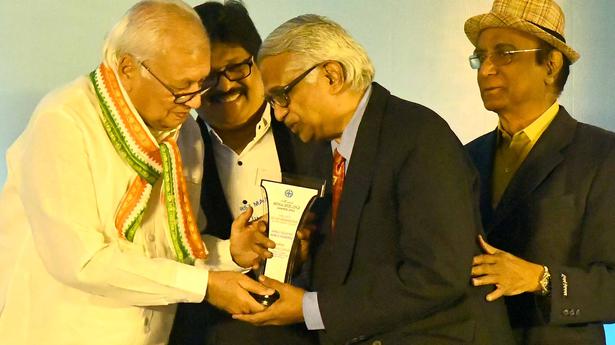
Hospitals, pharma industry must prioritise affordable healthcare: Kerala Governor
The Hindu
‘It is important to be mindful of the healthcare needs of the less privileged’
Kerala Governor Arif Mohammed Khan on Monday appealed to the healthcare and pharmaceutical industries to be mindful about ensuring that the people from underprivileged sections of the country are provided affordable and quality healthcare.
Addressing the sixth "Medical Excellence Awards" ceremony organised by the World Tamil Chamber of Commerce here, he said India had a rich legacy since ancient times in the field of medicine, which was based on compassion and empathy.
Highlighting that India is a major medical tourism hub as the medical expenses here are cheaper than many South Asian countries, he said that it was, however, important to ensure affordable healthcare for the less privileged in India. Tamil Nadu had a robust healthcare infrastructure like that of Kerala, he said, adding that Chennai remained the medical tourism capital of India.
Congratulating all the doctors and hospitals who received awards at the function, he said the doctors deserved utmost praise and gratitude for their role during the COVID-19 pandemic.
V.V. Banu Rekha of Indian Council of Medical Research, National Institute for Research in Tuberculosis, stressed on the need for increased collaboration between private and public sectors. J. Selvakumar, president, World Tamil Chamber of Commerce, doctor C.M.K. Reddy and others spoke. Doctors and healthcare institutions selected by a jury for their work were felicitated at the function.
Doctors Ramachandran and Usha Rani of Sri Ramachandra Institute of Higher Education and Research, K.P. Kosygan, Kunal Patel, and Rakesh Gopal of Apollo Hospitals, Raju Sivasamy, M. Ram Prabahar and R. Sundararaman of SIMS Hospital, M. Ramula of Karpaga Vinayaga Institute Of Medical Sciences And Research Center, Kasinathan Nachiappan and Daniel from Meridian Hospital, D.R. Gunasekaran of Sree Balaji Medical College and Hospital, Lasya Thambidurai, C.M. Kishore, V. Pavithra and K. Janarthanan were among the awardees.













